Eat Puglia | Spaghetti all’assassina
Originating from Bari, Puglia’s regional capital, the dish should be three things. Burnt, crispy and fiery. The technique is unusual, the taste unique!
The pasta is cooked using the risottatura method, where a tomato broth is consistently added to the dry pasta as it absorbs it and cooks. Cooking the pasta risottata is not unique to this dish. We sometimes use it when cooking pasta with seafood. But letting the pasta burn and blacken and crisp gives spaghetti all’assassina its unique taste and gives the dish its killer name and reputation.
Locally the dish is also known as spaghetti bruciati (burnt spaghetti). Therein lies the clue. Do not be afraid to let the spaghetti blacken and burn as you cook it
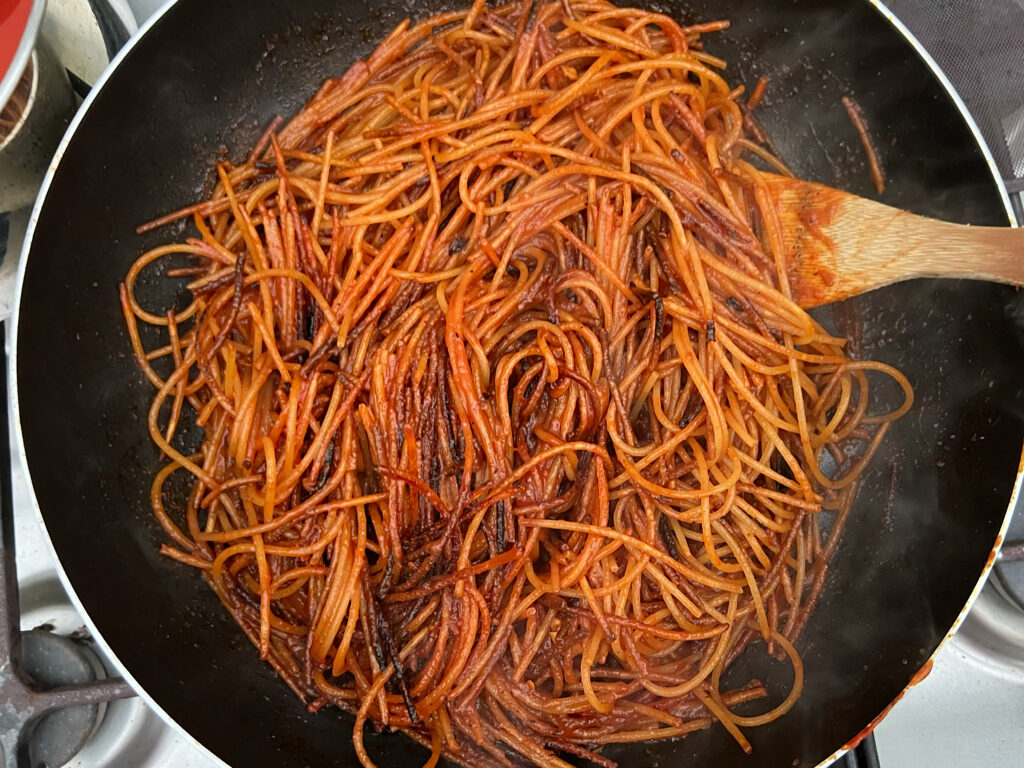
Depending where you eat it, some will be more burned than others. This adds a smoky, sticky complexity. For us the pleasure is eating it according to the classic recipe, but sometimes depending on our mood and especially if we know the restaurant serves a very blackened version, we ask for it with stracciatella; shredded, creamy mozzarella. In Ostuni we have also seen it served with cime di rape, anchovy and fried breadcrumbs.
Expect to pay between 12€ - 16€.
You can make this dish at home. Use a large cast iron or non-stick frying pan that is large enough to let the pasta spread across the bottom of the pan, using a high heat.
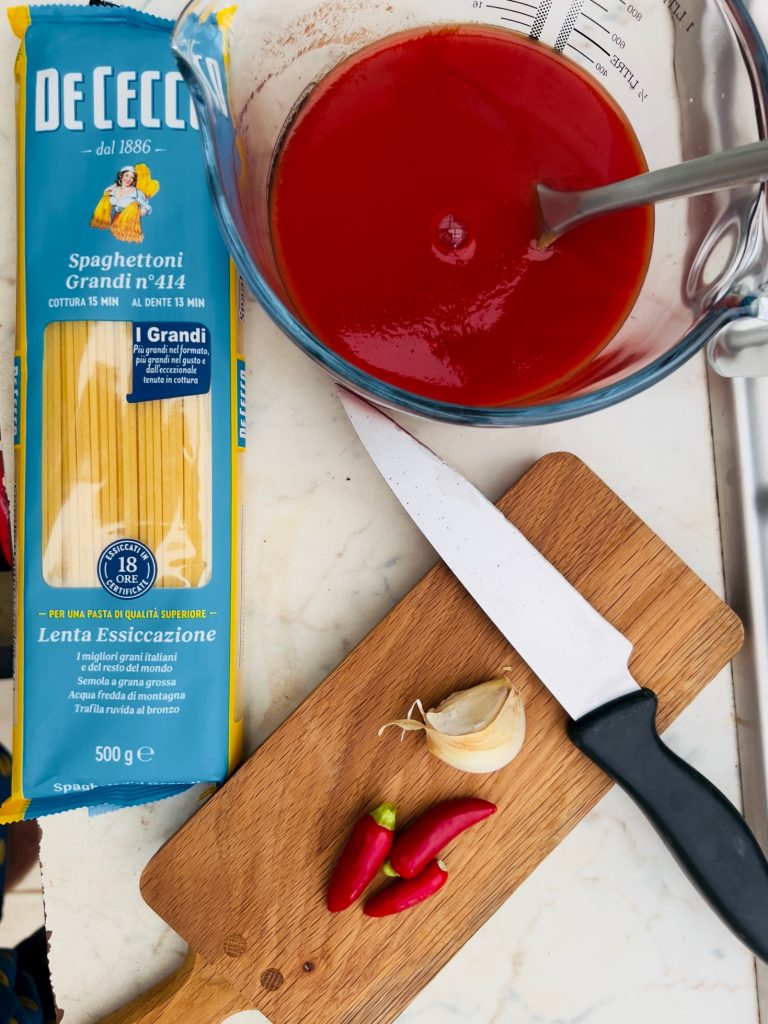
This recipe isn’t an exact science. We may use more or less liquid depending on the pan, the type of spaghetti. We might use fresh chilli and more garlic.
Tip | we prefer using spaghetti that isn’t “bronze cut” pasta. Traditionally pasta dough was pushed through bronze dies to create the pasta shape, but these have typically been replaced with teflon. Whilst bronze cut produces spaghetti has more texture which is good for holding a smooth sauce to the pasta (great for cacio è pepe for example), it also typically releases more starch. This gets in the way of the spaghetti’s browning process when cooking assassina).
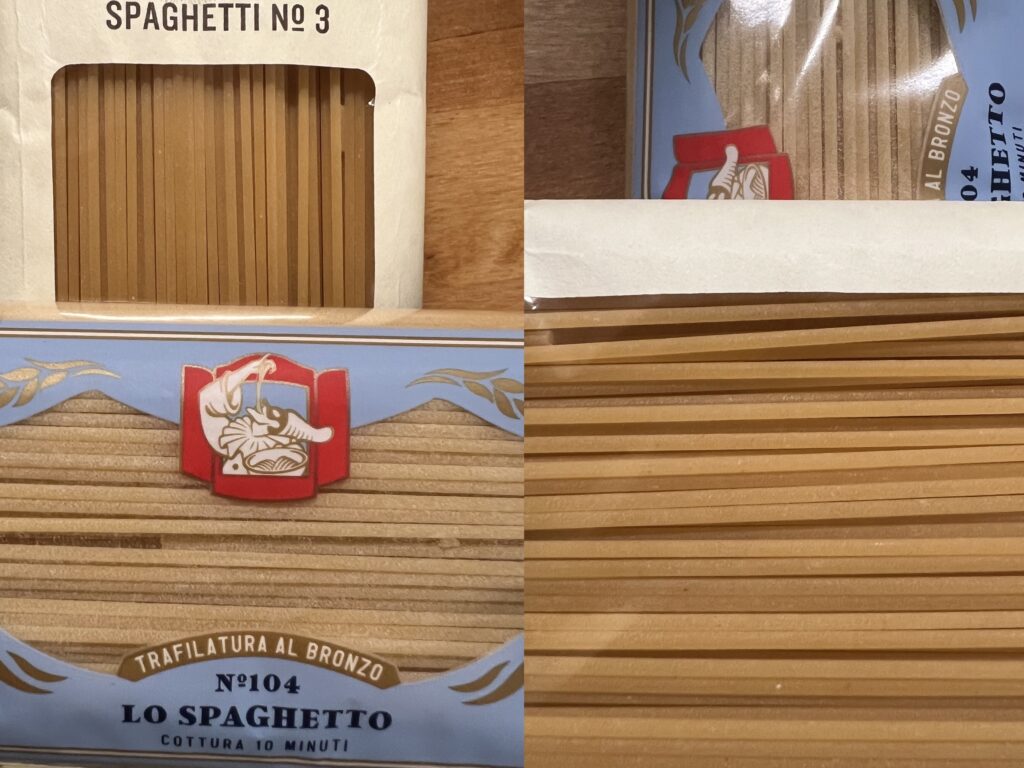
Method
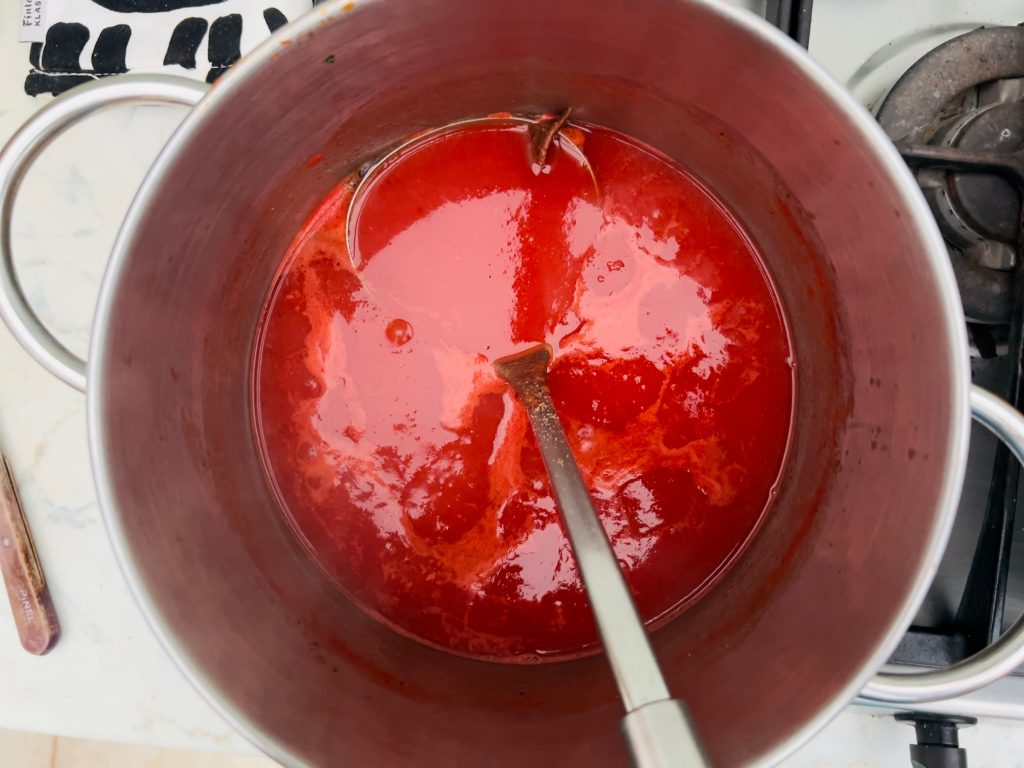
1. Prepare a broth made with water (1 litre), 500ml tomato passata and 150g of tomato purée. Season to taste and bring to a boil. According to the the Academy of Spaghetti all'Assassina (there is such a thing), the sauce "must be bright red and tasty, but still a broth."
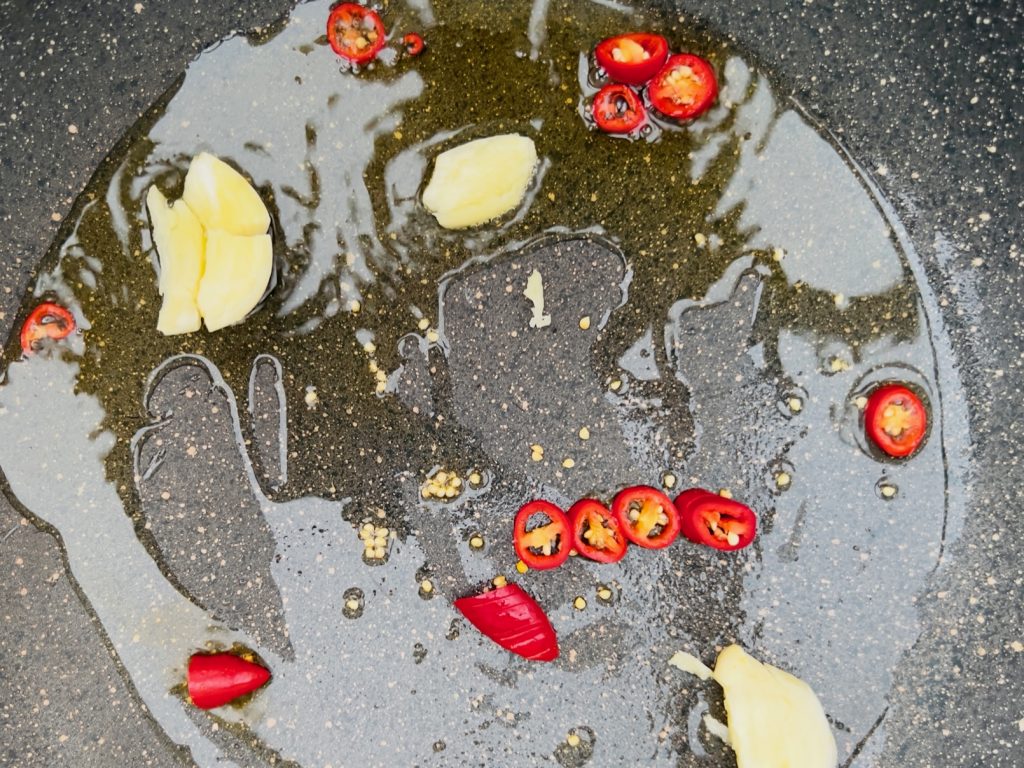
2. Pour a generous glug of extra virgin olive oil into the pan. Add 1 clove of chopped garlic, 1 clove whole garlic slightly flattened using the flat of a kitchen knife, and a sprinkle of dried red pepper flakes. Heat over a high heat until the garlic sizzles, but don’t let it burn and get bitter. Add the remaining cup of tomato purée into the pan and spread across the bottom.
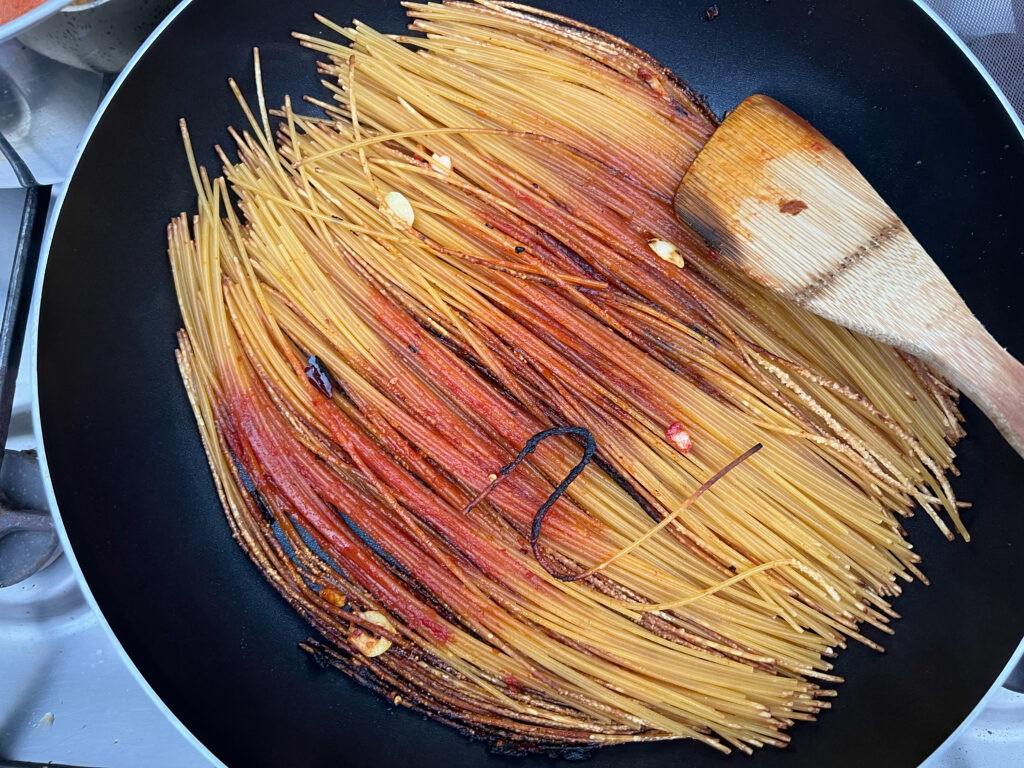
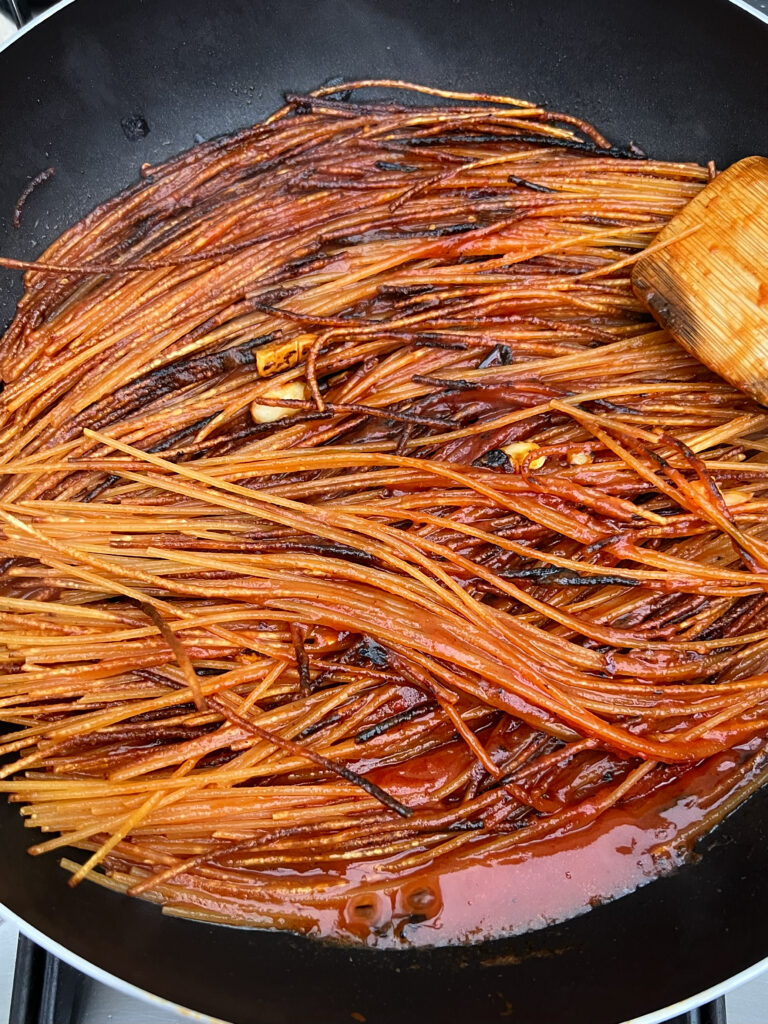
3. Drop the dry spaghetti in the pan and spread into an even layer distributing them so that the pasta collects the sauce evenly. The first step is to step back. Let the pasta caramelise and blacken slightly before flipping it over to do the same on the other side. Use your ears and nose. Listen for the sizzle and smell the smokiness.

4. When the pasta has been seared and slightly burned on both sides, pour 2 medium-sized ladles of the tomato broth over the pasta. The liquid will sizzle and start to simmer. Let it reduce without turning the spaghetti and listen carefully for the boiling point. When you hear it sizzle again (the noise changes sharply) remain patient and wait for the burning process to continue (this will take 30 seconds to 1 one minute).
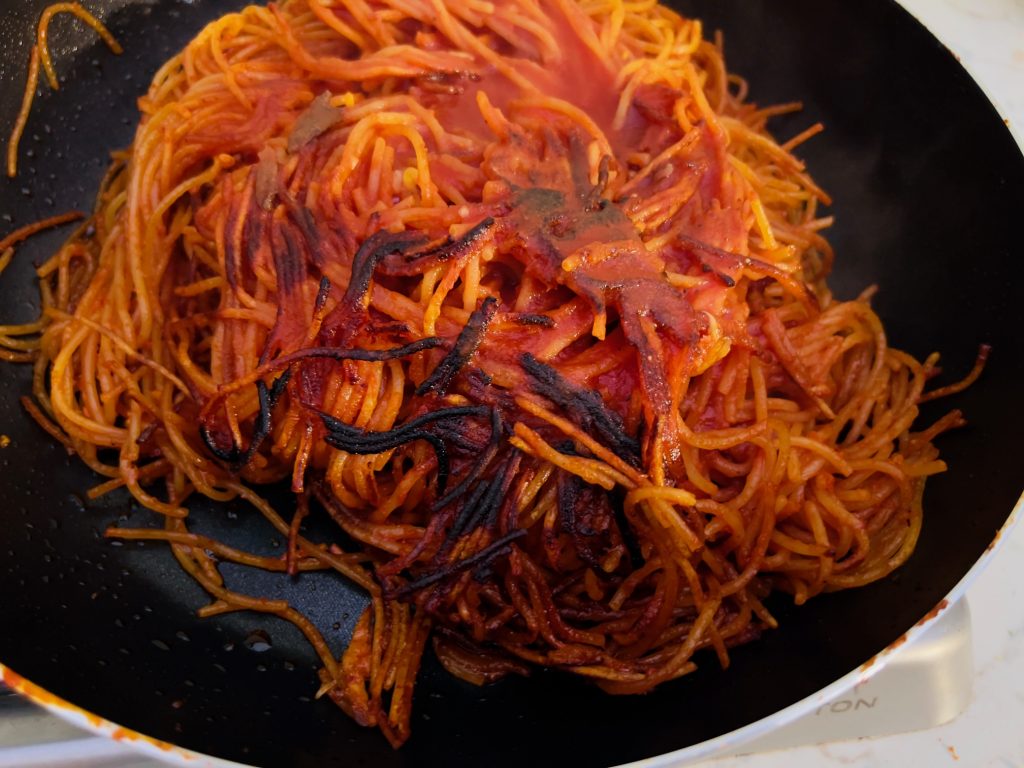
5. At this point the pasta can be stirred slightly. It should remain quite stiff. Repeat, stirring to remove the burnt spaghetti from the bottom of the pan while adding more tomato liquid. Each addition must correspond to the time needed for it to sizzle and then repeat by soaking the pasta with the sauce. The stiff spaghetti will start to bend. The spaghetti must then “be killed”.
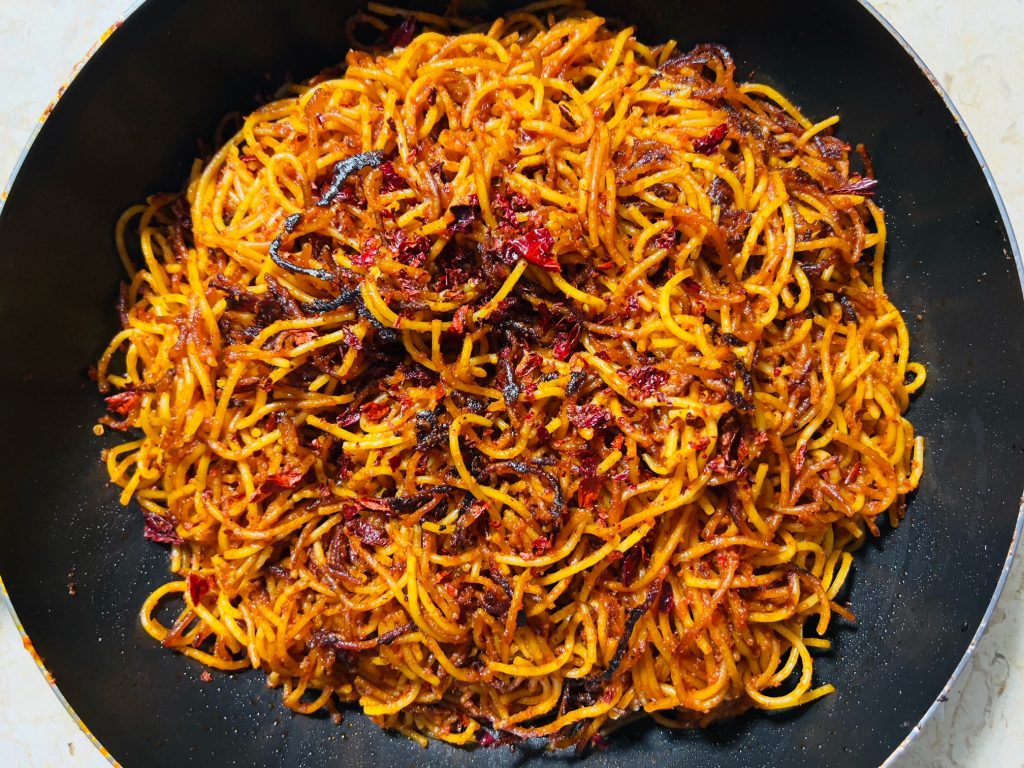
You may need to add some more olive oil to the spaghetti to help it on its way. Clumps of burned pasta can be separated by stirring and turning the pasta. The pasta shouldn’t swell as it does when boiled. But it should be cooked through.
Serve immediately, while hot and fiery. Drizzle with some olive oil for extra pepperiness.
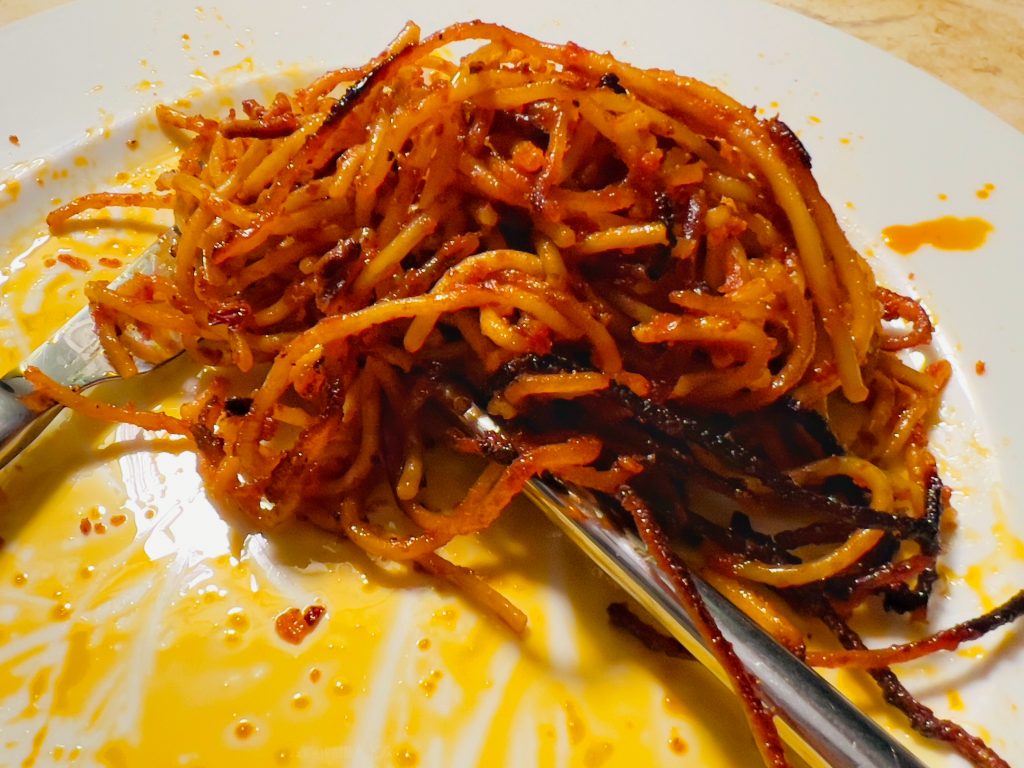
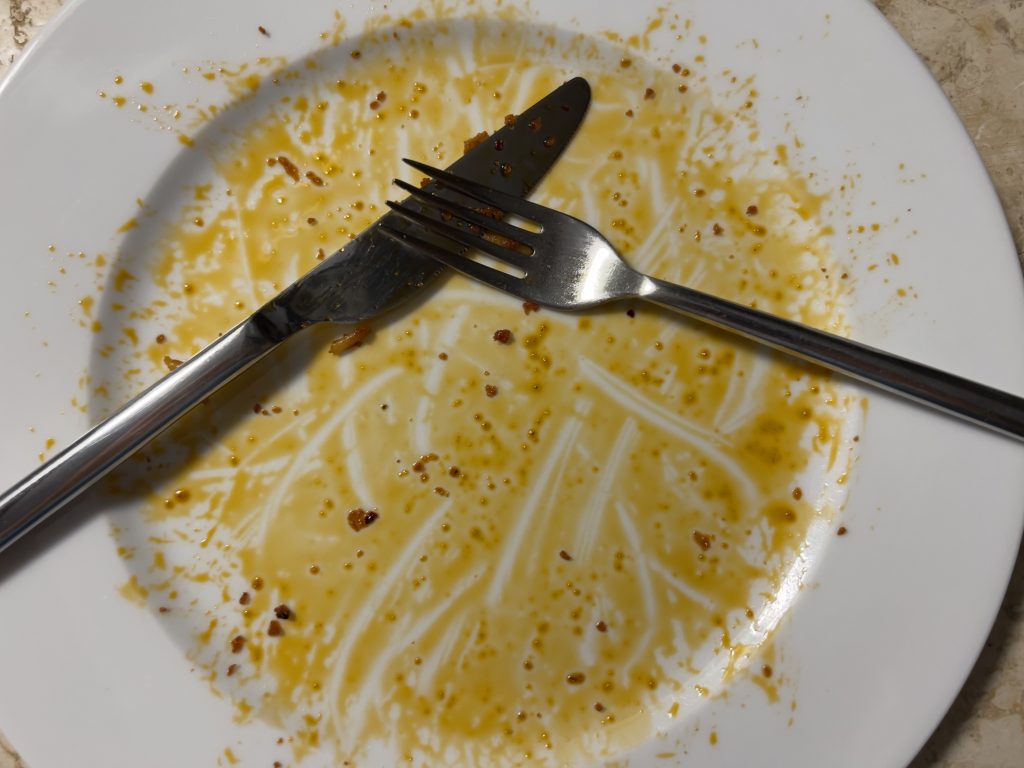
Spaghetti all’ assassina originated at the end of the 1960s at Al Sorso Preferito, a restaurant in Bari's city centre. They still serve the dish today (photos sent to us on Twitter by Mr. Roth @rothsclass this July)
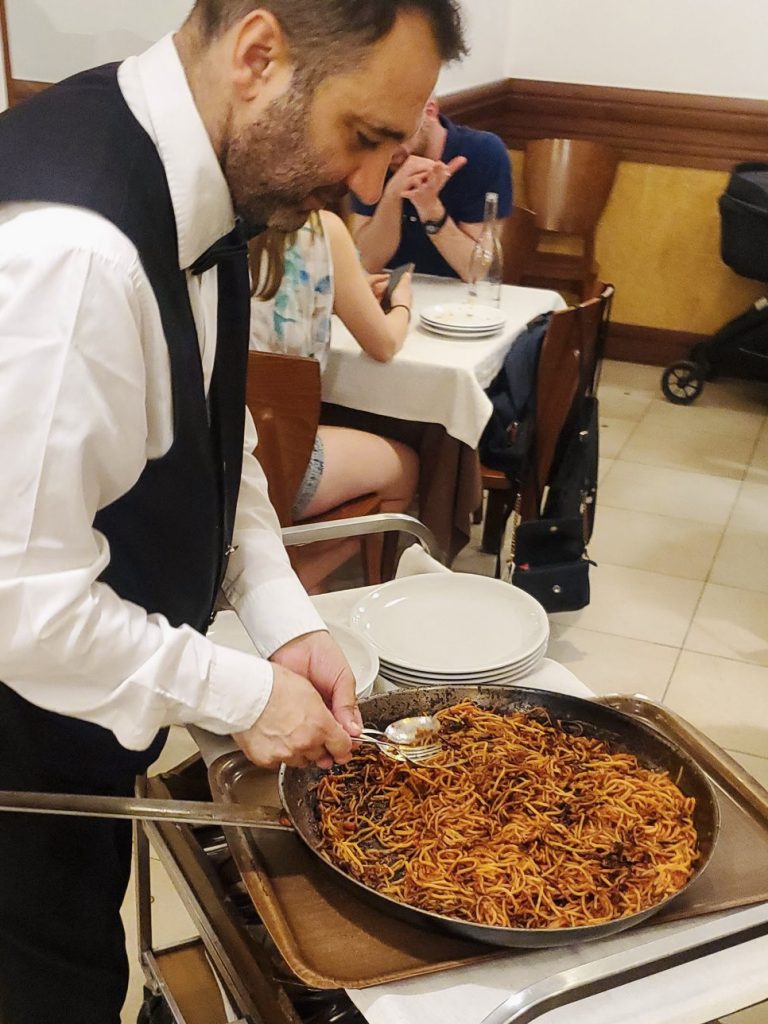
Photo from Mr. Roth, Twitter
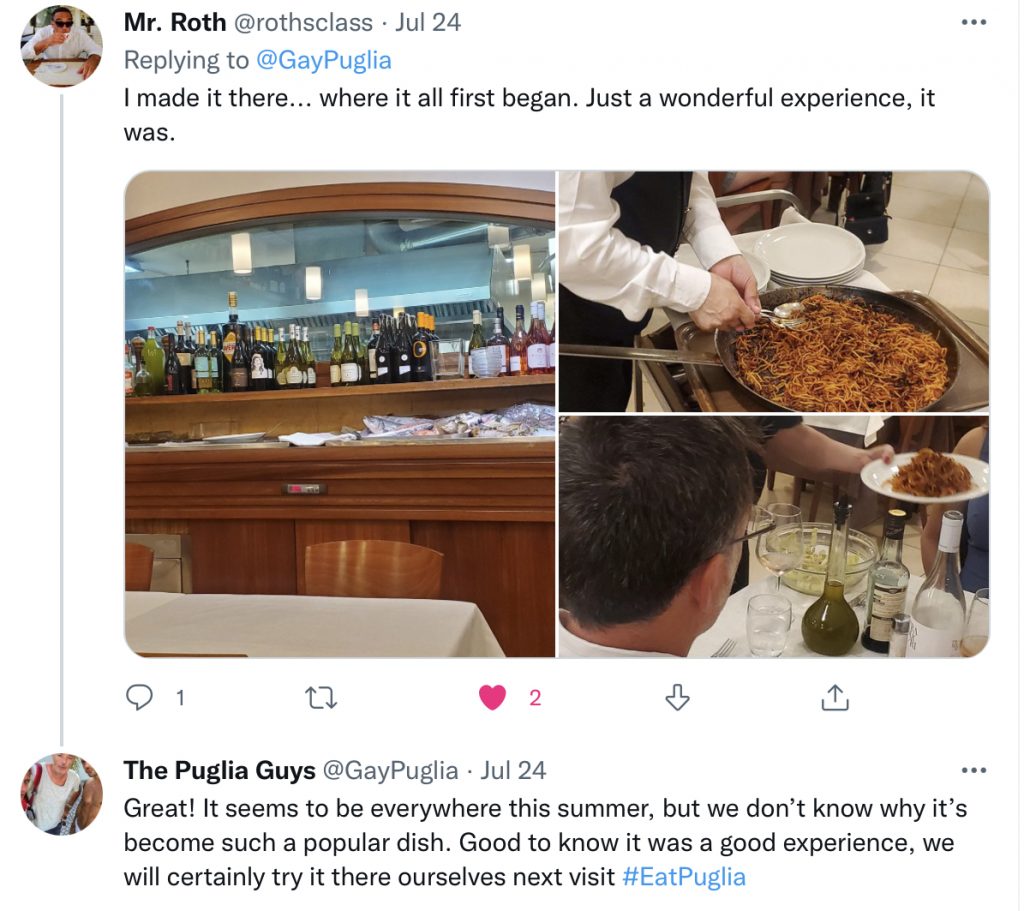
When we are in Bari we try to go to Urban Bistrot where they have an assassineria range of 9 types of spaghetti all’assassina, including the classic. Some consider it to be the best in Bari. Stanley Tucci ate it here when he visited Puglia for his ‘Searching for Italy’ TV series.
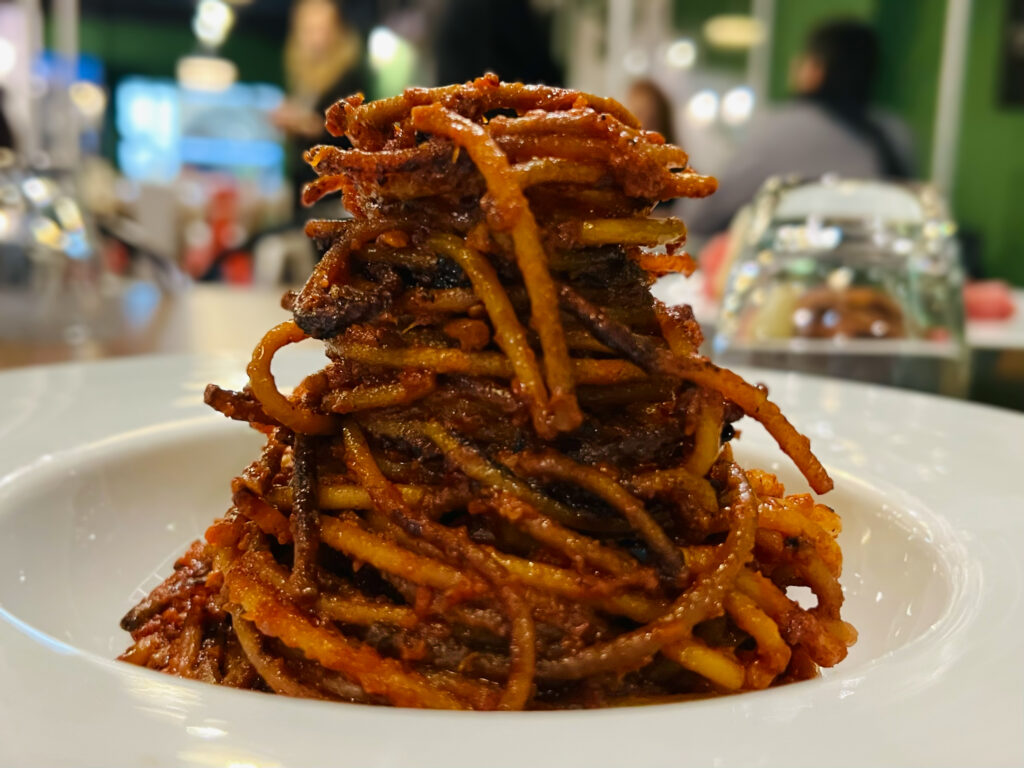
Remember, spaghetti all’assassina uses dried pasta. It won’t work as it should if you recycle already cooked pasta.
Visitors have been known to order the dish and send it back when it arrives complaining it is burned! On ordering it some waiters will explain that the recipe involves burning the spaghetti.
Some restaurants have a less traditional version. This one was served to us in Ostuni. The spaghetti had been pre-cooked in water before being added to the sauce. The effect (and taste) is less.
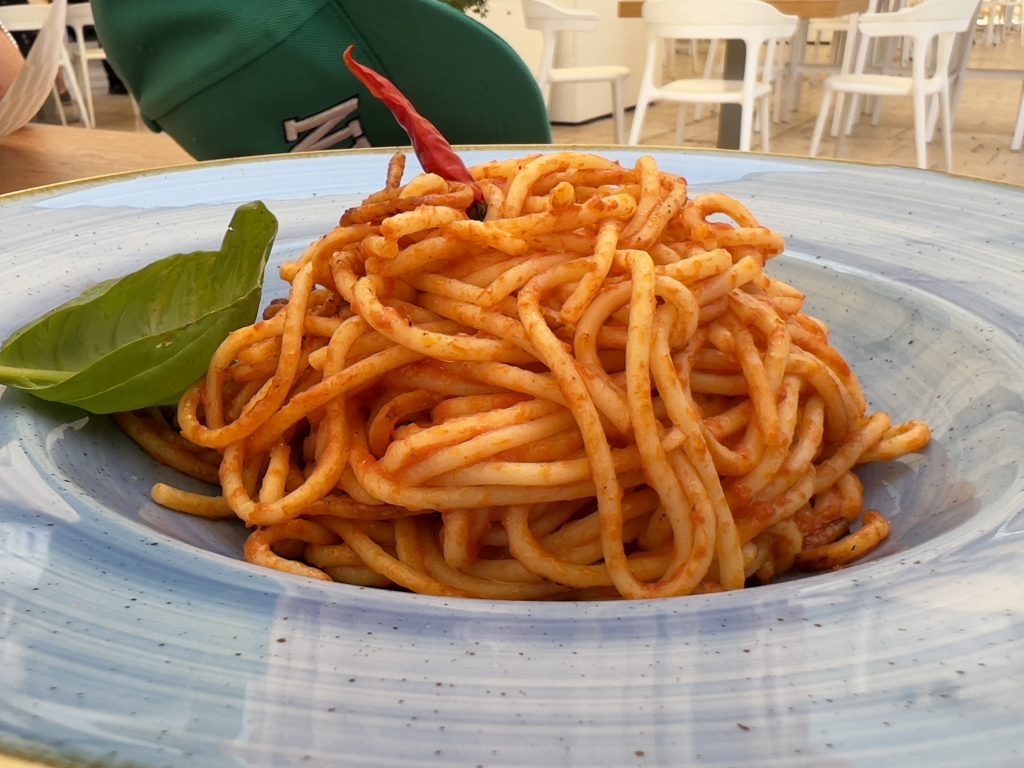
More | our curated guide to Puglia’s best restaurants and eating experiences | Masseria Moroseta review - expensive but exceptional dining | Grottaglie’s La Luna nel Pozzo - could this be one of Puglia’s best restaurants? | Puglia - where to base yourself on vacation | the definitive gay guide to Puglia 2022.
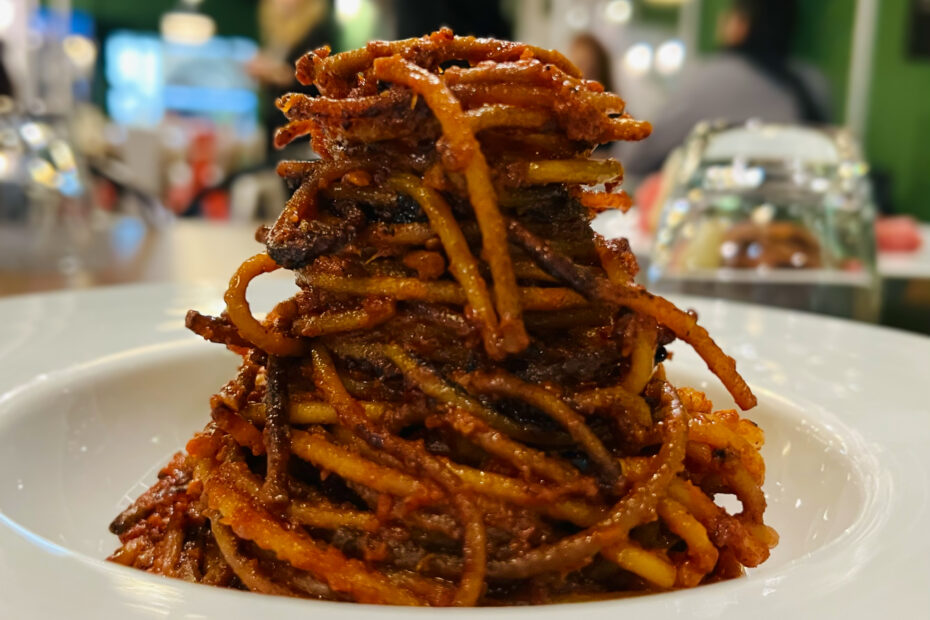

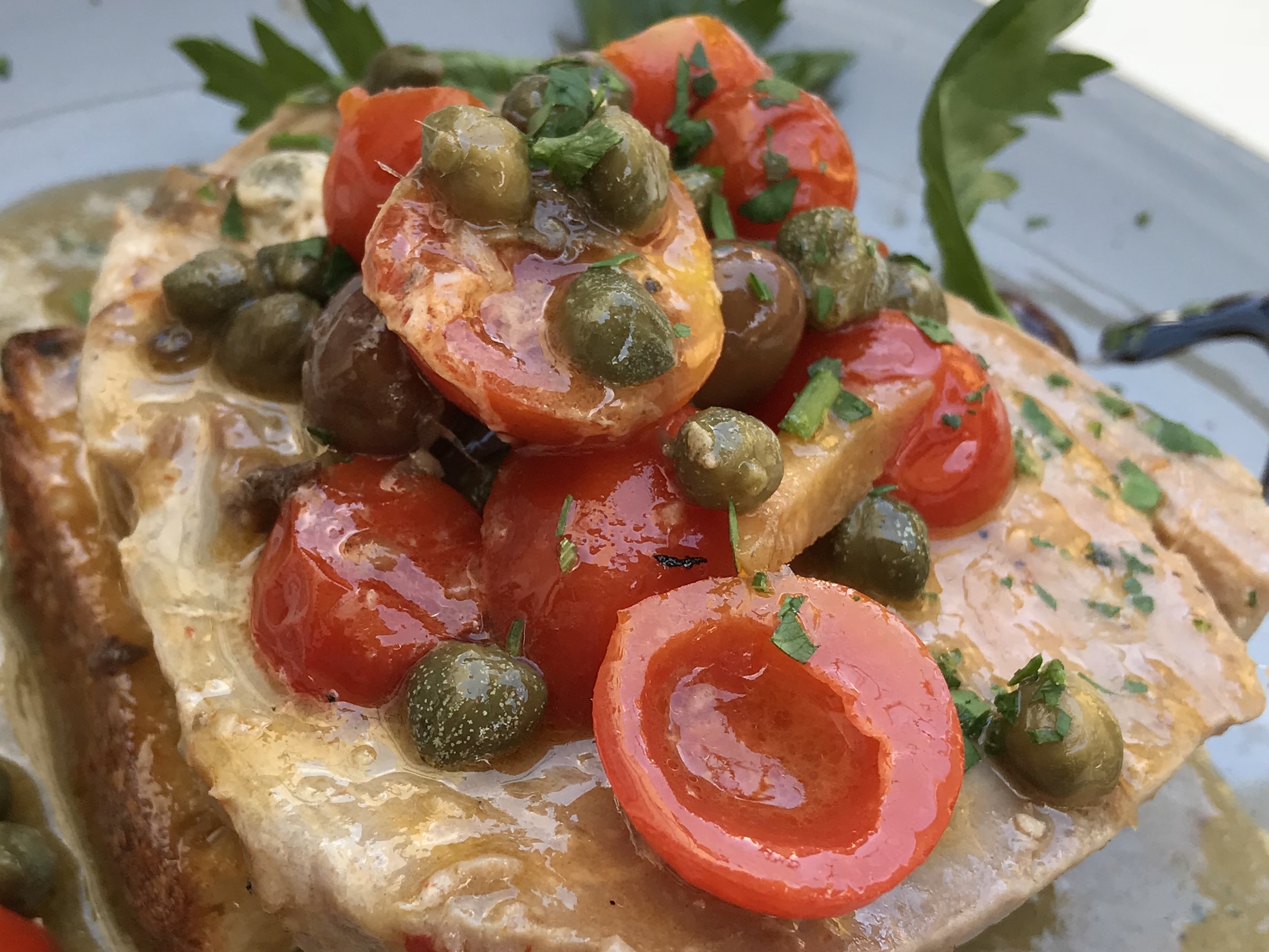
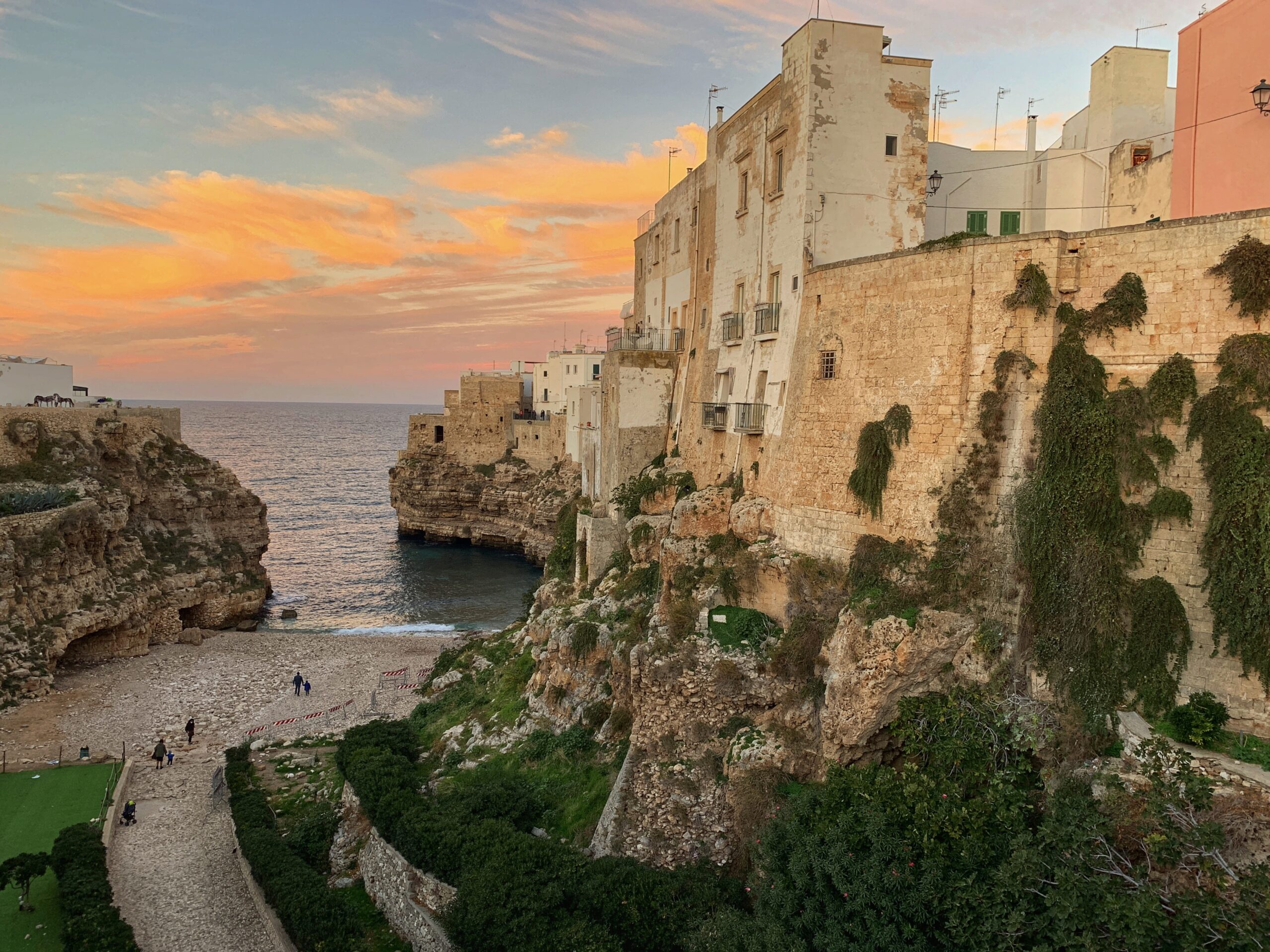


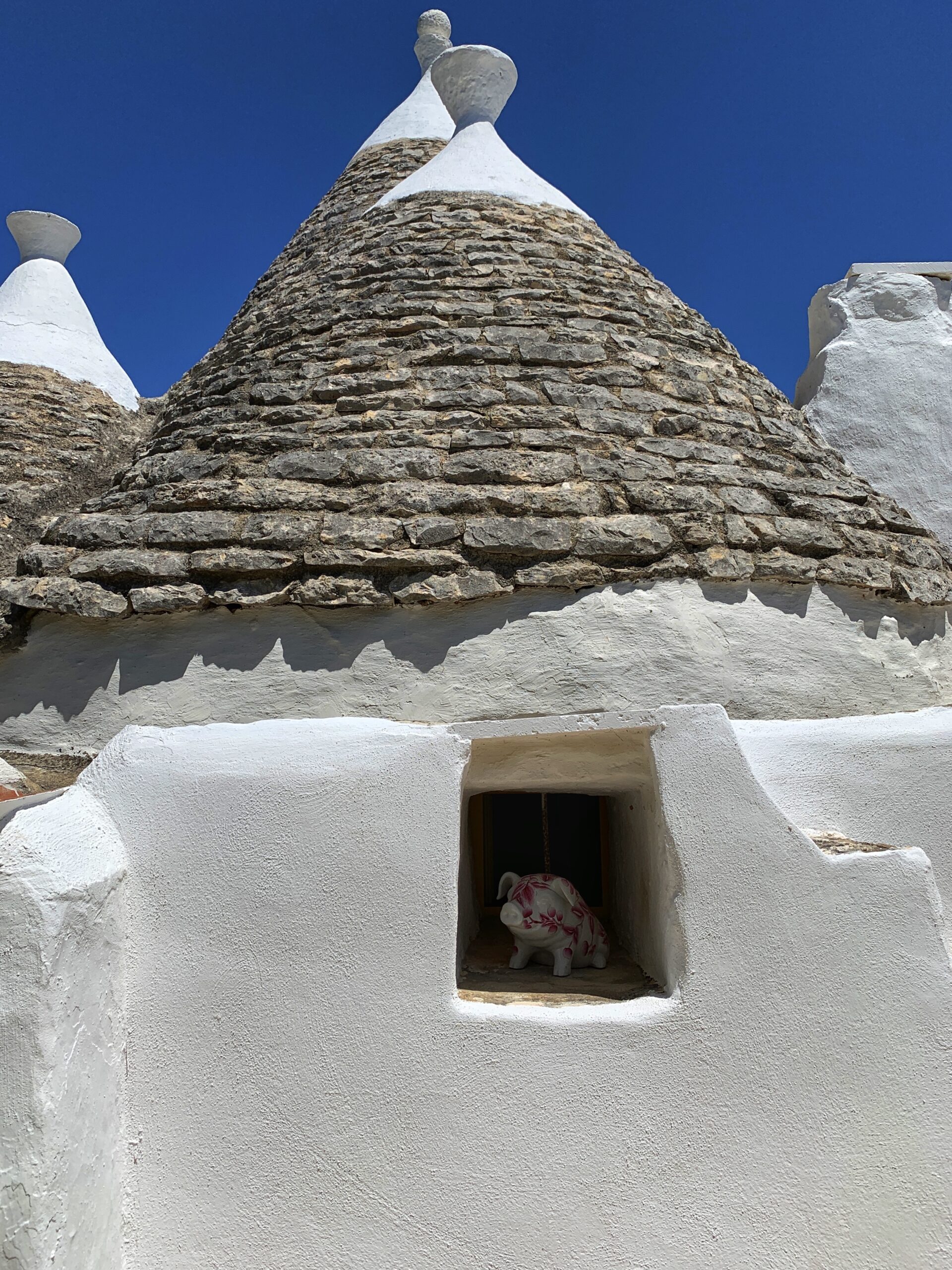
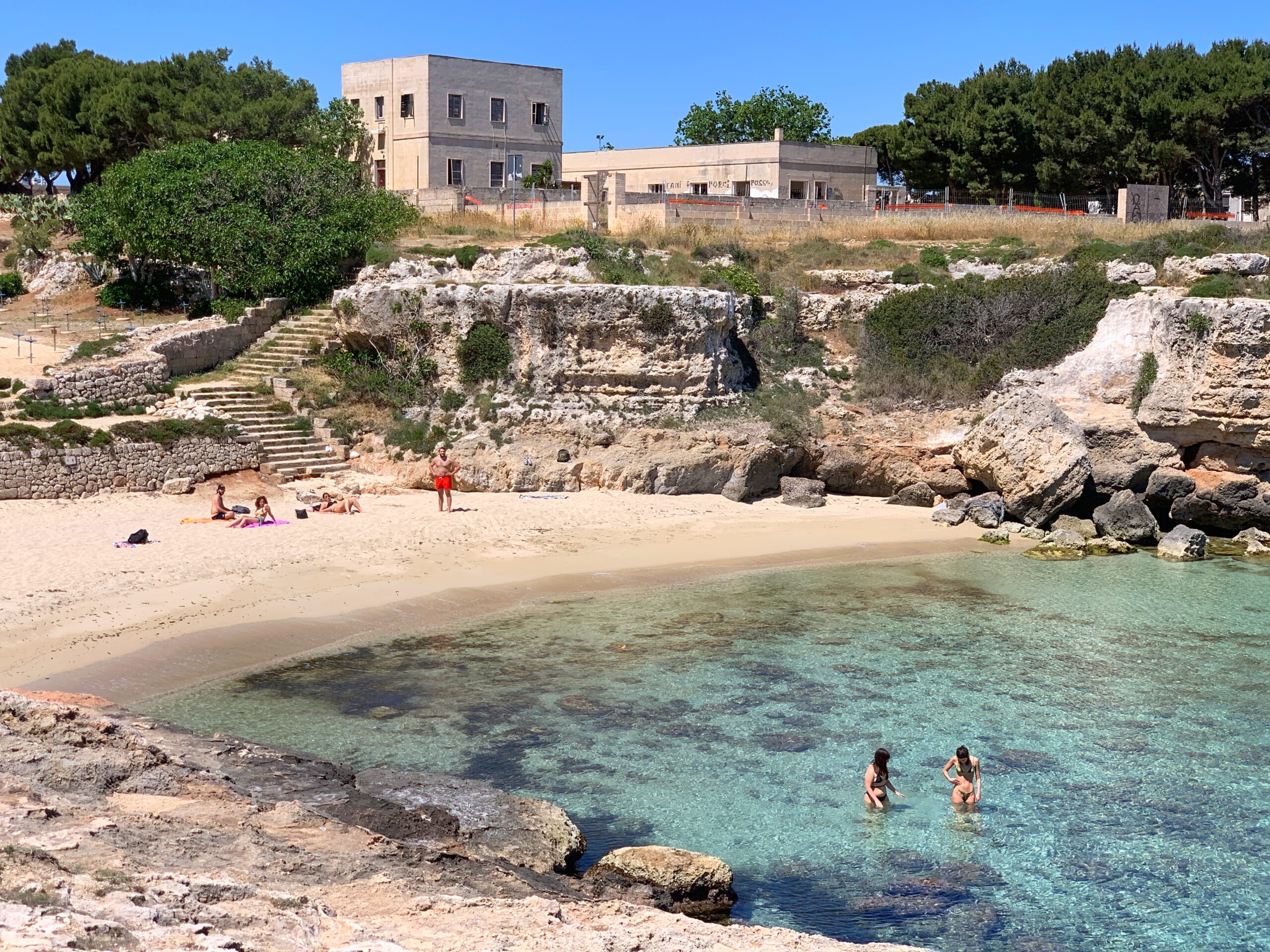

First time hearing about the risottatura method for cooking pasta. I’m very intrigued now and need to try this dish.
Top! This isn’t the only dish to use the risottatura method, some seafood dishes use it too. Happy cooking.